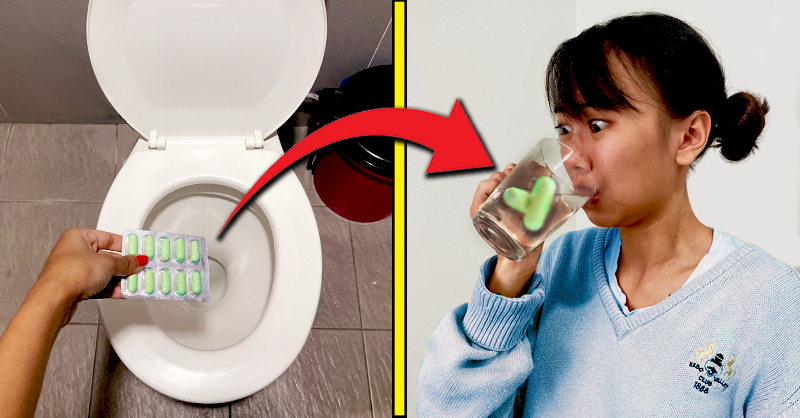Aiyo… Why so many Malaysian athletes doping?
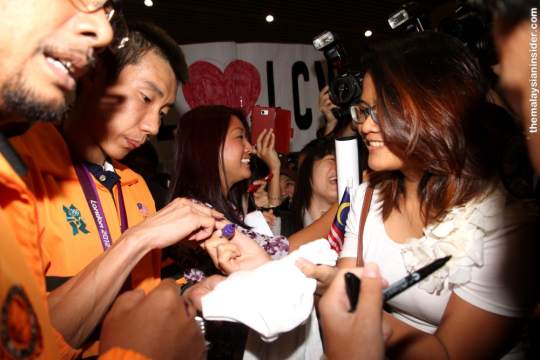
- 570Shares
- Facebook564
- Twitter2
- Email1
- WhatsApp1
When news broke out that a Malaysian athlete failed a doping test, all eyes were on Datuk Lee Chong Wei as keywords “top”, “national”, “badminton” and “shuttler” headlined news sites across the country. (I mean, how can one NOT suspect otherwise?) Having failed the first part of his urine exam (namely Sample A) conducted overseas recently, Datuk Lee Chong Wei is quite possibly full of suspense right now as he waits for the results for Sample B.
Doping scandals are every athlete’s worst nightmare – apart from a tarnished reputation, they (and sometimes their coaches) get stripped of past titles and wins, get banned from the sport and risk their health. That’s literally like, stripping down a hero to a zero.
Just to be clear, there has been no official statement about Datuk LCW as the shuttler in question despite this suggestive article from The Star that was circulated here, here, here and pretty much everywhere else. There’s also been a painful stretch of silence as every party in this scandal refuse to mention names, although top media players such as The Star and TV3 have been bold enough to spell out Datuk LCW’s name. Malaysia waits in agony, with this article perfectly summing up if there’s something uglier lurking in the shadows, but that’s a story for another day.
Datuk LCW may be the first high-profiled athlete caught in a doping scandal, but he’s definitely not the first. In September, Tai Cheau Xuen had to return the gold medal won at the Asian Games after being tested positive for sibutramine. Around the same time, three women athletes at SUKMA tested positive for banned substances. One of them was stripped of her records and two gold medals. In 2013, a cyclist was found to be on anabolic steroids and in 2012, a relay sprinter was tested positive for methandienone, causing his team to be stripped of their gold medal.
That’s crazy amount of cases in Malaysia. Is it a growing trend?
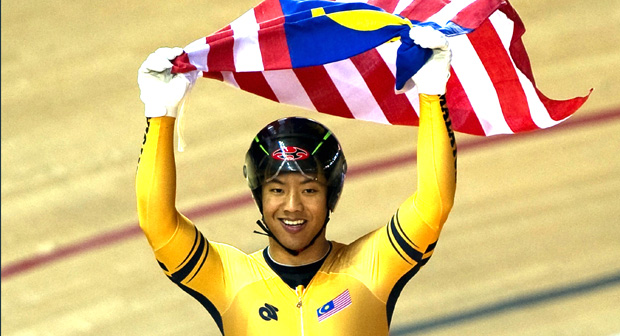
CILISOS had the privilege to speak to Josiah Ng, national cyclist, who gave us first-hand insights into the local sporting scene. As a sportsman with over 20 years worth of experience, Josiah knows the industry through and through. “You gotta be real naive if you think that there are no sportsmen in Malaysia who take performance-enhancing drugs (PEDs),” he tells us on Skype. “I wouldn’t say it a growing trend. PEDs have been in the Malaysian sporting industry for so long, but it’s making headlines right now ’cause Datuk LCW’s such a big name in the country.”
And whether or not Datuk LCW is found to be guilty of PEDs (or rather, in his updated case, dexamethasone, a steroid medication to help soothe injuries instead of enhance performance), doping in sports should make headlines because it’s a vice that needs to be stopped. What we’re trynna say here is, not only can PEDs strip athletes of their fame and fortune… It can cause a truckload of health complications including death itself. But it’s hard to stay away because the desired effects can be awesome.
It’s like taking drugs, but instead of seeing psychedelic turtles flying across your ceiling, you’re freaking Ironman. Or Hulk. Whichever Avenger you prefer. Either way, you can get yo’self killed.

Check out this chart about the most common types of PEDs and their effects –
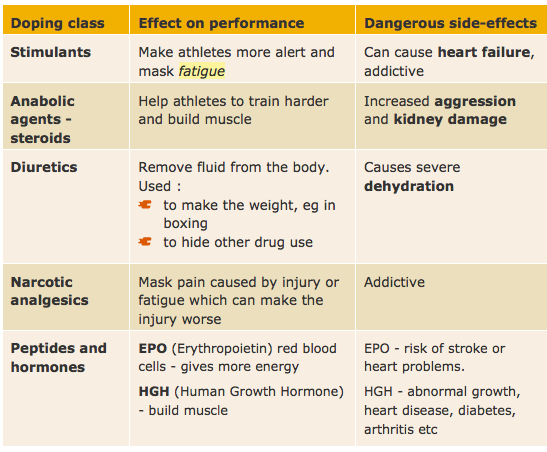
Another popular method is blood/oxygen doping where blood that has been removed from the body a few days earlier is injected back into the body (’cause by then it would have more oxygen). Frankly, that’s super disturbing.
But not as disturbing as the extent some people would go to hide it. More on that later!
So it then begs the question – why are people still taking PEDs?
Josiah’s stance against doping is bold despite being tempted to try it once when the stakes were high. “I was tempted, I’m human too. I thought about it, I researched it, and I realised that it just wasn’t worth the risk,” he adds. So why do other athletes dope?
1. People are driven by fame
Wins bring rewards, and “where there’s money, there’s corruption”. Sporting can be a lucrative business with rewards ranging from RM2,000 to RM100,000. While the lower end of the scale may not seem like much to many, Josiah says that it’s all relative – RM2,000 may easily be jackpot for someone from a rural area. Plus, receivers of these rewards are not just athletes. Coaches get them too.
Another top national sportsperson, who wishes not to be identified, revealed that “the incentives Malaysians receive are significantly lower than in other countries”. This could also be the reason why people turn to PEDs – higher chance of winning, higher chance of rewards.
Which brings us to the second point…
2. Athletes may not even know what they’re taking
This shocker was quite heartbreaking. “You’ve got skilful athletes that come from kampungs and all… They’re just simple folks with dreams and passion, trying to rise up the ladder,” Josiah said, adding that a lot of them lack education on performance enhancing substances.

Like we mentioned in the first point, coaches get incentives too. So with this in mind, athletes could very well be duped into doping without them knowing.
Coupled with the fact that PEDs are super accessible, it’s hard to keep a latch on this. Josiah tells us that PEDs are super easy to find in Thailand, to the point where Australian bodybuilders would fly over to stock up. And Malaysia, well, we’re neighbours and all so accessing these drugs is easier than you’d think.
“The goal is to win at all costs, so they do what they’re told and take what they’re given.” – Josiah Ng
How often do players get tested? How do they get away?
Players can get tested randomly (like while shopping in the mall kinda random, super KGB-style even) by organisations such as the World Anti-Doping Agency (WADA). Check out this video with details on the process. Involves a bit of shi-shiing.
Josiah gets tested a handful of times a year, and even got tested twice a day at the Asian Games. With nothing to hide, he doesn’t need to worry. “Procedure’s pretty standard. Anti-doping organisations that conduct these tests are strict and professional,” he adds. However, no Malaysian organisations have tested him so far… Only the international ones.
Our anonymous Malaysian athlete also tells us that “there are limitless times as to how often we (athletes) have to do doping tests.” She also adds that players don’t get to choose. They’re caught randomly regardless whether they’re podium winners or not. They may also be selected more than once for a three-day meet or anything longer than that.
What are some of the measures people take to avoid getting caught? Well there are athletes who get pregnant and abort their babies for like strength and whatnot, athletes that swap their shi-shi with someone else’s, athletes that inject ‘blood boosters’ to dilute their blood (sorta like what Lance Armstrong did)… TBH there are many ways people can mask or fake their results, but it’s risky and requires extreme meticulousness. Also, it evolves according to times and trends. Read more here.

– ——— –
So what now, you ask?
As the nation waits for the identity of the shuttler to be revealed, it’s evident that the people have gone two ways – one, firm believers that their national hero is untainted; two, disappointed at the cooperative silence by Datuk LCW and the parties surrounding the event.
But regardless of the conclusion, we Malaysians love our national athletes. We love our sportsmen for trying, for being fair, for being true to the game and giving their all for the country.
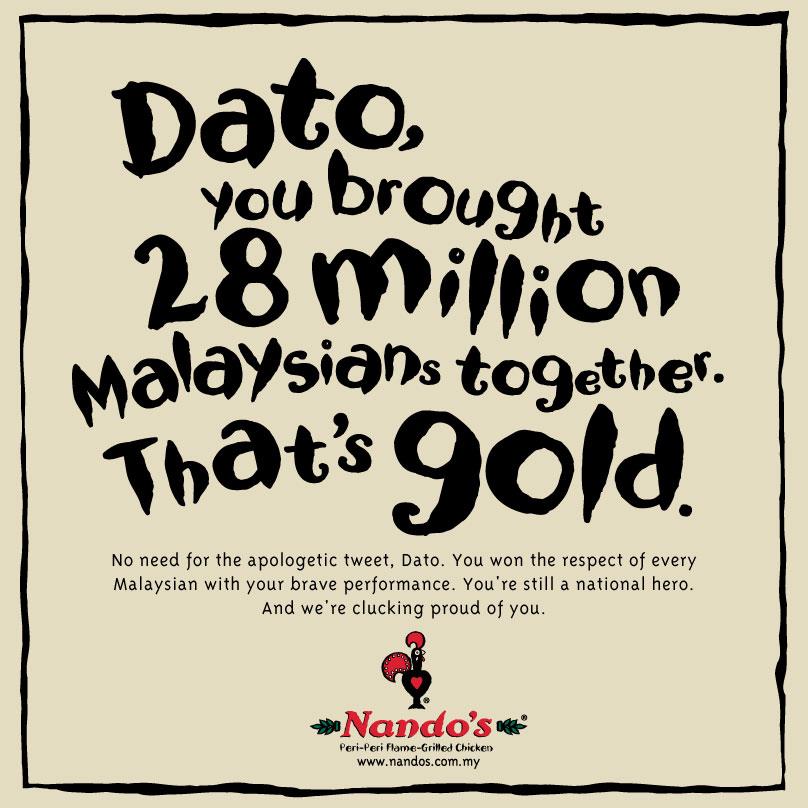
Because, didn’t we pick our heroes up when they fell, like when Datuk LCW came back apologetic over losing the gold medal at the 2012 London Olympics? Didn’t we flood Facebook with messages of support when Datuk Nicol David lost at the 2013 Women’s World Championships in Penang? Isn’t Team Malaysia, well, a team of Malaysians?
There is nothing that unites us Malaysians more than the love for sports and our sportsmen, so here’s hoping this will never change now until forever.
- 570Shares
- Facebook564
- Twitter2
- Email1
- WhatsApp1


